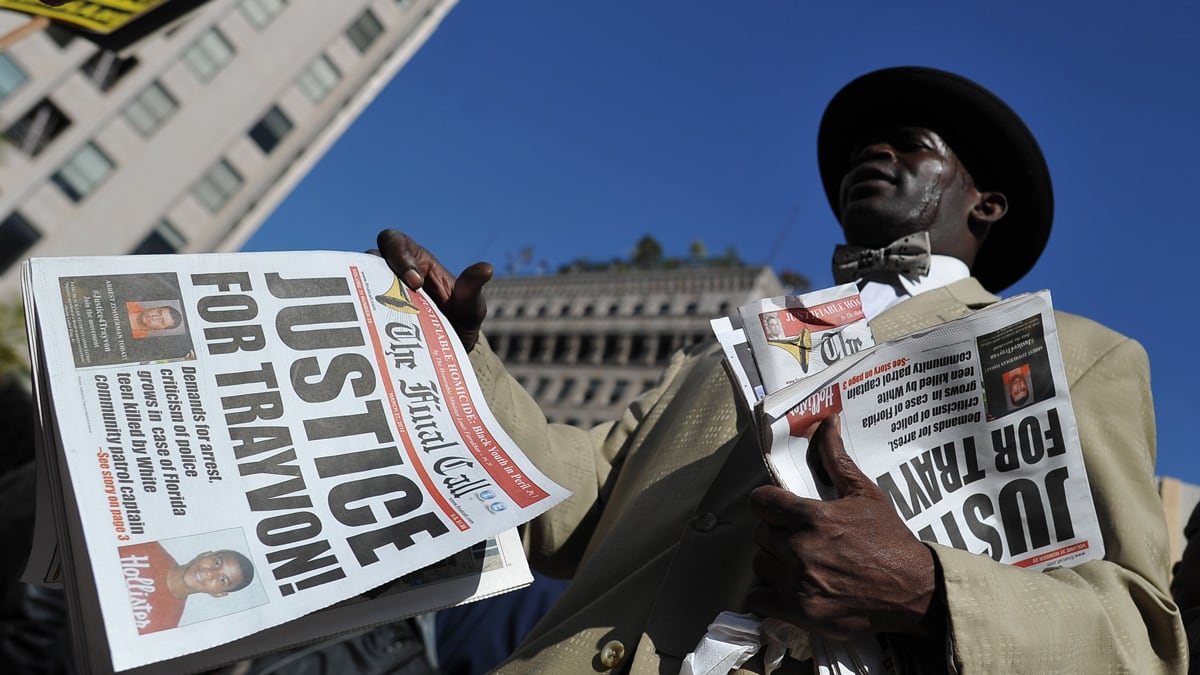The killing of Trayvon Martin is a terrifying tragedy that has inflicted a loss that is irrevocable. What remains to be seen is the outcome of competing responses to the calamity. Encouraging has been the extraordinary effort to prevent the shooting from being swept to the margins of public attention. Demands voiced in letters, blogs, petitions, and demonstrations have prompted government at all levels to respond to the pressure. Absent massive, persistent, and loud expressions of outrage, there would have been no recusal of the city police chief and the county prosecutor, no convening of a state grand jury, no appointment of a special state prosecutor, and no initiation of a federal investigation.

Presidential candidates typically steer clear of controversial local disputes, invoking either jurisdictional boundaries—claiming that it’s a state, not a federal, matter—or a lack of knowledge. In this case, though, the facts are so damning and discontent so mobilized that silence is unfeasible. Mitt Romney initially declined to comment. But then, realizing his vulnerability, he changed his tune, maintaining that “there needs to be a thorough investigation that reassures the public that justice is carried out with impartiality and integrity.” His Republican rivals were more forceful, with Newt Gingrich remarking that Martin’s assailant had obviously been engaged in dangerous “overreaching,” and Rick Santorum asserting that “the fact that law enforcement didn’t immediately go after and prosecute this case is another chilling example of horrible decisions made by people in this process.”
Barack Obama confronts a singular dilemma. First, he alone of the candidates shoulders a responsibility that directly impinges on the Martin case. He is, after all, the boss of Attorney General Eric Holder, whose department is conducting the federal investigation. The president alluded to that authority when he spoke about the killing, indicating his awareness of a need to be circumspect. Second, the president is a black man who is being asked for reactions to a homicide which has highlighted the special burdens that confront black men: an obsessive fear of black masculinity, habitual deployment of excessive force towards African-Americans, and a long-standing tendency for the legal system to withhold from black men equal protection of the law.
Obama’s response was Obamalike – measured, dignified, sober, and ambiguous. He refrained from acknowledging explicitly that race was part of the controversy. Some infer that there is a racial element in his observation that “if I had a son, he’d look like Trayvon.” But this statement can be read in several ways. It can be seen as a declaration of racial common cause, as if Obama was saying: I am moved by Trayvon’s fate because it reflects what could befall one of my own black children. Obama’s statement, however, can also be readily understood as an echo of the slogan that has been chanted by hundreds of thousands of people of all backgrounds who have imagined themselves in the place of the deceased teenager or his heartbroken parents: “I am Trayvon Martin!”
The outcry that has pushed this tragedy to the center of public awareness is a commendable development in a society that habitually continues to devalue blacks’ lives. The way ahead, however, is covered with snares. The lackadaisical initial response of the police may have led to the loss of key evidence. Local authorities angered by state and federal intervention could sabotage investigations. Thoughtless provocateurs could forfeit the goodwill amassed by thoughtful protestors. The administration of criminal law, moreover, is vulnerable to cruel vagaries; wrongful acquittals do occur (as do wrongful convictions). One can only hope that, with the whole country watching, some semblance of justice can be salvaged in Florida.






